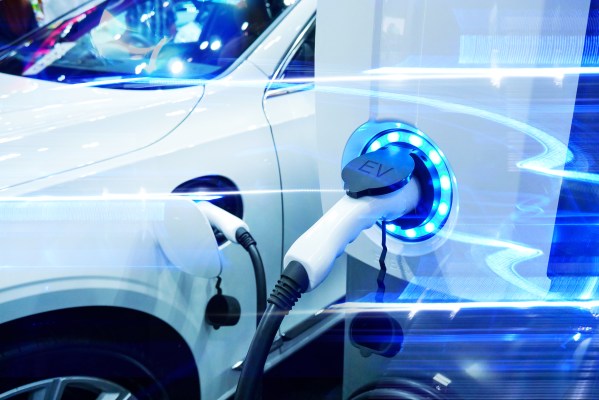Ford started production yesterday on its F-150 Lightning pickup truck, a do-or-die vehicle that takes the automaker’s — and the United States’ — best-selling vehicle and swaps its gas-guzzling engines for powerful electric motors juiced by more than 1,800 pounds of batteries.
The mattress-sized pack can deliver over 300 miles of range, but if Ford wants to win over weekend warriors who tow 28-foot motor boats, it’s going to need better batteries.
While today’s batteries can store more energy than ever — they’ve improved in energy density by 5% per year for the last several years — those steady, incremental increases probably won’t be enough to make EVs a no-brainer for many consumers. Today’s cells are better in every respect than those made five years ago, but they still leave much to be desired. What’s needed are some breakthroughs.
EVs are a relatively small part of the overall market for cars and trucks, but they make up nearly 80% of the demand for lithium-ion batteries, far outpacing devices like laptops and phones. And demand is only going to increase. The world is expected to need 5,500 GWh of batteries by 2030, according to Wood Mackenzie, a 5x increase over today, thanks to changing consumer tastes and looming phase-outs of fossil-fuel vehicles.
Over the next five years, the battery world is poised to undergo a significant transformation. I’ve sifted through a long list of startups to find the nine most interesting ones that are developing technologies to make batteries weigh less, charge faster, and last longer. In the last year and a half, they’ve collectively raised $4.1 billion — some of that through special purpose acquisition companies, but the vast majority from late-stage venture and corporate rounds.
Solid-state
The battery tech that’s been getting the most attention recently is solid-state, and for good reason. Automakers are salivating at the idea of EVs with a range of over 400 miles that can be recharged in 15 minutes, which solid-state batteries have the potential to deliver.
Solid-state batteries earn their name by replacing the liquid electrolytes that shuttle ions from one side of the battery to another with solid versions. Solid electrolytes offer a few advantages. For one, they can prevent the growth of dendrites, stalactite-like spikes of lithium that can form on a battery’s electrodes. Dendrites can grow relatively easily in the liquid, so battery makers add an ion-permeable separator to prevent dendrites from bridging the gap between positive and negative electrodes.
If the separator is damaged, as happened in defective Chevy Bolt battery packs, then dendrites can cause a short circuit that can start a fire.
The other thing that solid electrolytes can enable is what’s known as a lithium-metal battery. In a typical lithium-ion battery, when lithium ions are on the anode side, they’re stored in graphite. Graphite anodes are inexpensive and stable, but they add weight to a battery. Eliminating them would help lighter batteries store more energy, but lithium-metal anodes are prone to forming dendrites. To prevent dendrites from growing long enough to short-circuit the battery, researchers are working on solid electrolytes that not only block the stalactites, but also won’t create problems with the anode’s highly reactive lithium.
Three companies in particular show promise in solid-state. One is Factorial, which has raised $253 million, including a $200 million Series D that closed in January and was led by Mercedes-Benz and Stellantis, the automaker created by the merger of the Italian-American Fiat Chrysler Automobiles and France’s PSA Group. Factorial, based in the Boston suburb of Woburn, Massachusetts, had operated in stealth mode until last April.
